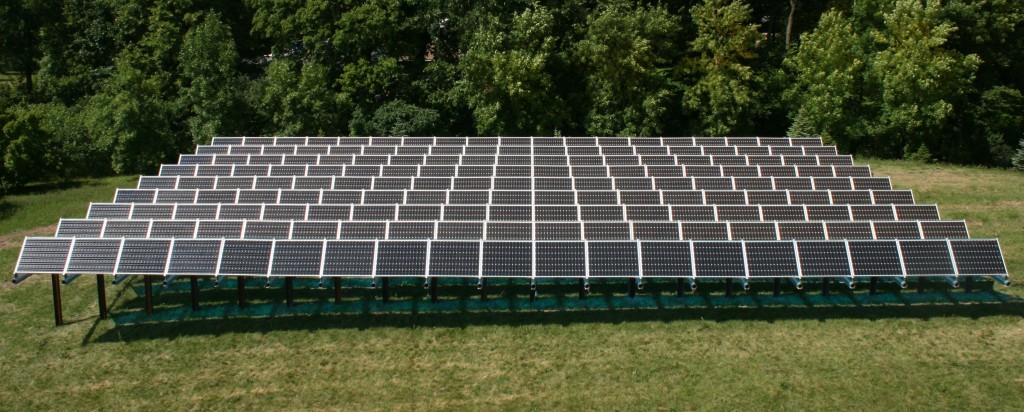Strong demand for homegrown energy sources, and the benefits to the NH economy and environment
By Kate Epsen
There’s a lot of buzz in New England lately around community energy projects. New Hampshire is no exception. Often discussed in the context of NH’s relatively new group net metering law, community energy project opportunities include many different project types that engage groups of people in the successful deployment of renewable energy investment and benefits.


Owners Dieter and Dietrich Ebert will build a 66-kW 7,000-sf solar array near their neighboring North Hampton, NH homes. The energy will benefit 10 friends and family members in the area. The plan is possible because of the new net-metering rules that recently passed in the state and are available at this point. This project is now fully approved at the local/utility/state levels and is shovel ready for construction. Photos courtesy of tenKsolar.
True community energy efforts can include several types of projects that do not involve group net metering. A community of people, businesses or non-profits can come together and invest in a system for a community-centered facility that fosters a wide range of overlapping benefits to the community itself – economic, educational and environmental. For example, consider a religious or educational institution where participants invest in a system to provide energy savings, show a commitment to environmental stewardship and enhance economic benefits by leveraging tax incentives otherwise unavailable to a non-profit entity. This is just one form of community energy that is under consideration.
There are many additional options: a town hydroelectric system allocates the generation across its town hall, library, and school accounts; a resident-owned community (ROC) invests in a shared solar electric system to power the new air-source heat pumps on the homes of its residents; a local electric utility and a business co-invest in a wind facility to offer a “local clean energy” tariff to utility customers.
These examples are not hypothetical. A group of individuals in Keene, originally spearheaded through an Antioch College graduate student project, are working to form an LLC with local investors to build a small system (about 45 kilowatts) that may be sited on the new food coop. John Kondos, a leader of this pioneering effort, explains that in this version of community energy, “no group net metering will be needed—one scenario may have investors putting in about 60% of the capital, lenders could cover the remaining 40%, and the power will be sold to the host through a power purchase agreement. However, other debt[-to-]equity ratios are also entirely possible.”
In North Hampton, NH, yet another type of model has emerged. NH Solar Garden, a project development and finance company, enlisted twelve family members to create group of aggregated electric load that will be met with supply from a 66 kilowatt solar electric system. Using group net metering, this project will return one cent per kilowatt-hour of each member’s electric load back to that member, two times per year. According to the founder and president of NH Solar Garden, Andrew Kellar, this project is the first of many in the pipeline that are utilizing this model, with other larger projects underway in Lee, NH and elsewhere, on properties ranging from landfills, to wastewater treatment facilities, unused farmland, and housing authorities.
While the buzz continues to manifest itself in understandable and viable project options across New England and NH—from Plymouth to Peterborough, to Grantham and Littleton—it is no easy task forming the appropriate legal and financial structures to execute a successful project. The demand for homegrown energy sources, however, and the benefits to the NH economy and environment that will accrue from their deployment (not to mention sheer Yankee persistence and ingenuity) are all proving strong enough to meet and surmount the challenges of this worthy undertaking.
Kate Epsen is the Executive Director of the NH Sustainable Energy Association and member of NH’s Local Energy Work Group.








Leave a Reply